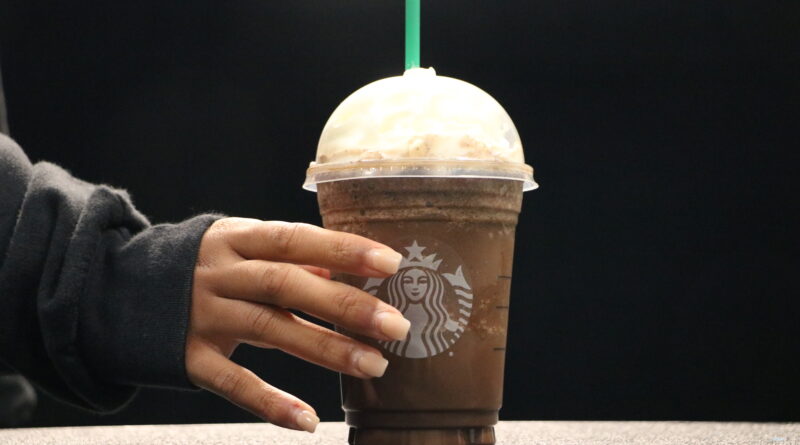Caffeine consumption causes concern
Caffeine: the sleep deprivation remedy. The all-powerful stimulant is a cornerstone of the American diet. Its properties make it a powerful remedy for sleep and tiredness, but is it worth the drawbacks? Known side effects of caffeine consumption range from nausea and anxiousness to headaches and even chest pains. So how “worth it” is caffeine?
The Olympian conducted an online survey and Instagram poll to see how caffeine affects students at CVHS. Most students say there are little to no downsides. From 288 respondents, 63.5 percent admitted to drinking caffeine, primarily coffee and tea, for their energizing benefits throughout the school week.
The energy boost that caffeine gives students is a quick way to help students stay up and be ready to get work done. Though pulling all-nighters are not the best on the mental and physical health of a student, it’s still common practice. Of all surveyed students, roughly 51 percent said that they have used caffeine to help their performance in school.
“I drink caffeine because it makes me feel more awake after getting five hours of sleep,” said junior Elise Ledesma.
This level of caffeine usage concerns health and medical careers teacher Sue Anderson.
“Caffeine creates this artificial focus,” explained Anderson. “So it creates this kind of dependency… it does not allow a person to have their own agency.”
While there are mental and physical health benefits from caffeine consumption, usage specifically by teenagers, who do not yet have fully developed brains, can become an addiction. Caffeine gives students a power boost to stay awake, work hard or even pull an all-nighter. But overconsumption can also lead to an energy crash, upset stomach and other side effects.
“[Teenagers are] the target audience,” said Anderson. “The brain is more vulnerable under 25 to any addictive substances.”
Like nicotine users, caffeine consumers psychologically crave their “fix.” They then continue to spend money on this pseudo-energy.
According to Anderson, caffeine “hijacks the brain and creates this reward pathway of a loop.”
She also brought up the financial aspect of caffeine overconsumption. Over time, the material cost of caffeine adds up, yet never creates a net increase of energy, as it always leaves you lower than started.
So how much caffeine usage is too much? Anderson stated that it varies from person to person: what they have eaten, or how hydrated they are. She recommends looking out for shakiness, hyper-focus that cannot be controlled, and always wanting more.
What side effects do CVHS students experience? Roughly 70% of surveyed students said there are little to no repercussions for their caffeine usage, and roughly 90% said they don’t feel constantly tired without caffeine.
“I usually just drink caffeine because I like it, it probably does help but I don’t notice it,” said junior Vlasi Pagonis.
Still, for those concerned about their caffeine consumption, what alternatives are there?
“Grab a glass of water, add some salads to your diet, get more vitamins in your system and get more hydration,” recommended Anderson. She also suggested eating some more citrus, doing some stretches, and going for walks outside. “[That way] you will feel the payoff, but you won’t feel the crash.”
Remember the cost of caffeine consumption the next time you see a Monster, Red Bull, Starbucks drink or tea in someone’s hand, or consider taking a sip yourself.


I really enjoyed reading this article and I totally agree with you about teens caffeine consumption. I find that it is very easy to feel like it is something that we need if you get carried away, which your article talks about so well!
It’s good to see this article addressing student caffeine consumption and its effects. It highlights the importance of promoting healthier habits among young people.
I think it is crazy how many people consume caffeine. I personally don’t drink caffeine much, so I wouldn’t know the amount of effect it has on students. But I think there’s better ways to stay awake because too much caffeine can be bad.
The article was very interesting. I agree that coffee and such are definitely a drug and teenagers should be more conscious of their consumption of it. I personally don’t have caffeine very often but I do think that the school environment pushes people to rely on caffeine, as they are so tired from school and staying up late for schoolwork, studying, or extracurriculars.
I found the comparison to nicotine to be very interesting. Although nicotine is way more looked down upon compared to drinking coffee they are honestly pretty similar. I personally can’t drink coffee without getting a massive stomach ache so I don’t drink it too often but I drink it once in a while.
Great article! This definitely informed me of the drawbacks and better solutions to fatigue.